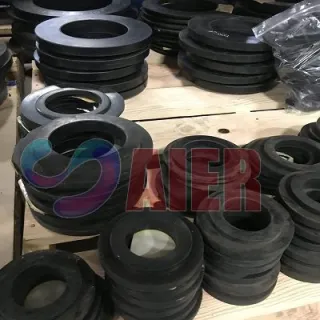Des . 21, 2024 19:38 Back to list
slurry pump impeller material factories
Understanding Slurry Pump Impeller Materials
Slurry pumps are crucial components in a variety of industrial applications, particularly in mining, mineral processing, and wastewater treatment. One of the most critical factors that determine their performance and operational efficiency is the material used for their impellers. The impeller is the heart of a slurry pump; it directly influences the pump's ability to handle abrasive and corrosive materials. Therefore, selecting the right material for slurry pump impellers is paramount for the longevity and reliability of the pump.
Common Materials for Slurry Pump Impellers
1. Metal Alloys Metal alloys are among the most common materials used for slurry pump impellers, primarily due to their durability and resistance to wear. High chromium cast iron is particularly favored for its excellent ability to withstand abrasive slurries, making it a popular choice in mining applications where hard materials are common. Other alloys, such as nickel aluminum bronze, offer corrosion resistance and strength, suitable for applications where chemical exposure is a concern.
2. Rubber Rubber impellers are used in applications where the slurry is less abrasive but can be corrosive. Rubber possesses excellent flexibility and resilience, which helps mitigate damage from impacts. Furthermore, rubber impellers can be reinforced with fabric or other materials to enhance their strength and wear-resistance. Their ability to handle corrosive substances without suffering from pitting or erosion makes them a viable option in chemical processing.
3. Polyurethane This is a relatively newer material that has gained traction in slurry pump applications. Polyurethane combines the flexibility of rubber with the wear resistance of metal, offering a balanced option for various types of slurries. It is particularly effective in applications where both corrosion and abrasion are factors, providing adequate protection against both.
4. Ceramics While not as common as other materials, ceramic impellers are sometimes used in specific applications that require extreme resistance to wear and corrosion. Ceramics can handle very abrasive conditions and exhibit negligible degradation over time. However, their brittleness can be a concern, and they are generally used in less aggressive environments or in parts of the pump where high wear is expected.
Factors Influencing Material Selection
slurry pump impeller material factories

When selecting the impeller material for a slurry pump, several factors must be considered
- Type of Slurry The composition of the slurry being pumped is the primary determinant of material choice. Abrasive slurries containing hard particles, such as sand or gravel, typically require tough metal alloys to withstand wear. Conversely, more fluid and less abrasive slurries may be effectively handled by rubber or polyurethane impellers.
- Temperature and Pressure Operating conditions, including temperature and pressure, also play a crucial role. Some materials perform better under high temperatures or high pressures, while others may degrade or lose structural integrity.
- Cost and Maintenance The cost of materials and their longevity in a given application can influence the decision. While more expensive materials might offer better performance and longer life, the initial cost may not always justify the investment for every operation.
- Environmental Considerations In processes where environmental regulations are stringent, the choice of impeller material may need to comply with specific standards. For instance, rubber and polyurethane materials can be tailored to minimize environmental impact, while certain metal alloys may pose disposal challenges.
Conclusion
Selecting the right impeller material for slurry pumps is critical to optimizing pump performance, minimizing maintenance costs, and ensuring long-term reliability. Each material has its unique advantages and limitations, so understanding the specific requirements of the application is essential. By carefully evaluating options such as metal alloys, rubber, polyurethane, and ceramics, operators can maximize the efficiency of their operations while extending the life of crucial pumping equipment. In a demanding industrial environment, making informed choices about slurry pump impeller materials can lead to significant operational benefits.
-
Top Submersible Pump Companies High Quality Manufacturers & Suppliers in China
NewsJul.08,2025
-
High Quality Seal for 5 Inch Dredge Pump Reliable China Manufacturer & Supplier
NewsJul.08,2025
-
High-Efficiency Slurry Sand Pump from Leading China Manufacturer – Durable & Reliable Solutions
NewsJul.07,2025
-
High-Quality Slurry Pump Made in China Durable Steel Mill Slurry Pump & Parts
NewsJul.07,2025
-
High Quality Excavator Dredge Pump Manufacturer & Suppliers from China – Reliable, Durable, Efficient Solutions
NewsJul.07,2025
-
Wholesale Slurry Pump Closed Impeller Supplier High Efficiency China Slurry Pump Closed Impeller
NewsJul.06,2025
